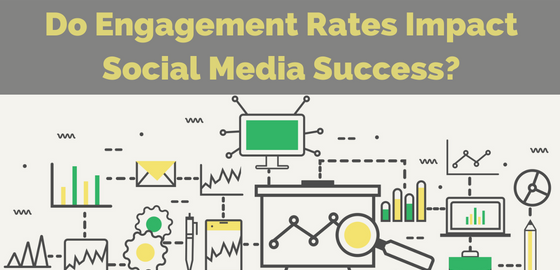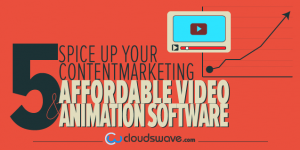Engagement rates have long be sought after when it comes to social media success.
We need likes! We need more fans and followers! Let’s boost that for more reach! Pay for ALL the video views!
But for plugged-in marketers, whisperings of engagement and engagement rates being “dead” are all around us.
So what’s the deal? Should you be measuring engagement rates as part of your social media metrics?
Here’s our stance.
Harsh Truths Surrounding Engagement
First, the bad news (I knew this was coming back in July!).
When discussing engagement rates with one of my networking groups, Kimberly Price, Senior Content Strategist at Merkley + Partners, had a few direct quotes that raised some eyebrows.
Her social tech vendor had this to say about engagement rates (ER):
“ER has been universally denounced as a metric for success. This is largely because ER is misleading since it’s based on the denominator in the equation: if you have low impressions your ER looks higher than if you have high impressions. That’s why it looks off when you bid for reach.”
And her Facebook rep had similar sentiments:
“Engagement isn’t a metric we recommend clients focus on, given that likes and other engagement have repeatedly demonstrated limited correlation with business outcomes like offline sales or brand lift. This is why we introduced the Brand Awareness objective, which optimizes campaigns to deliver to those who are most likely to pay attention to your content, rather than engage. Attention directly correlates to higher ad recall which drives brand metrics and is an important measurement for most brands.”
So does all of this mean we should stop looking at engagement rates?
Not so fast.
Engagement Rates Are Still Worth Tracking
The B Squared Media team agrees that engagement rates aren’t worth throwing out completely.
As I recently wrote in a post for {grow} on social analytics, we are usually asked to look at three types of KPIs:
- Awareness
- Engagement
- Conversion

Engagement rates still “count” for us for many reasons, with one of the biggest being the ability to understand the success of our content marketing efforts.
Using engagement to understand which pieces of (organic) content are resonating with our audiences then helps us uncover:
- The types of content to continue creating or curating — and what to stay clear of
- Which posts may bode well for boosting or promoting with ad dollars
Additionally, engagement rates allow us to see if the interest of fans on a particular platform have increased, decreased, or remain stagnant in their connection to the brand; which may indicate that other platforms need more/less attention.
Lastly, we still look at engagement rates as a pretty solid indicator that fans are still listening to what we have to say.
Especially when it comes to engagements like:
- Brand/product feedback
- Reviews
- Share of voice and volume, like mentions or use of brand or campaign hashtags
No, you simply can’t say engagement rates don’t matter at all, or EVER.
What’s Next?
My advice? Don’t rely on one social media metric to gauge success.
As for engagement rates, aim to have a steady supply of engagements; erratic rates can come from weak and greedy advertising.
Remember that engagement can be a flawed metric. Flawed, but not necessarily failing.
And not dead. Not in our book.
Do you rely on engagement rates as part of measuring your social success? Why or why not? Let us know in the comments section below!
Digital & Social Articles on Business 2 Community(41)







